This blog post was written by Talia E., a Tivnu gap year participant from Washington, D.C. Talia interns at Street Roots and Tivnu construction, and will attend Amherst College after completing the Tivnu program.
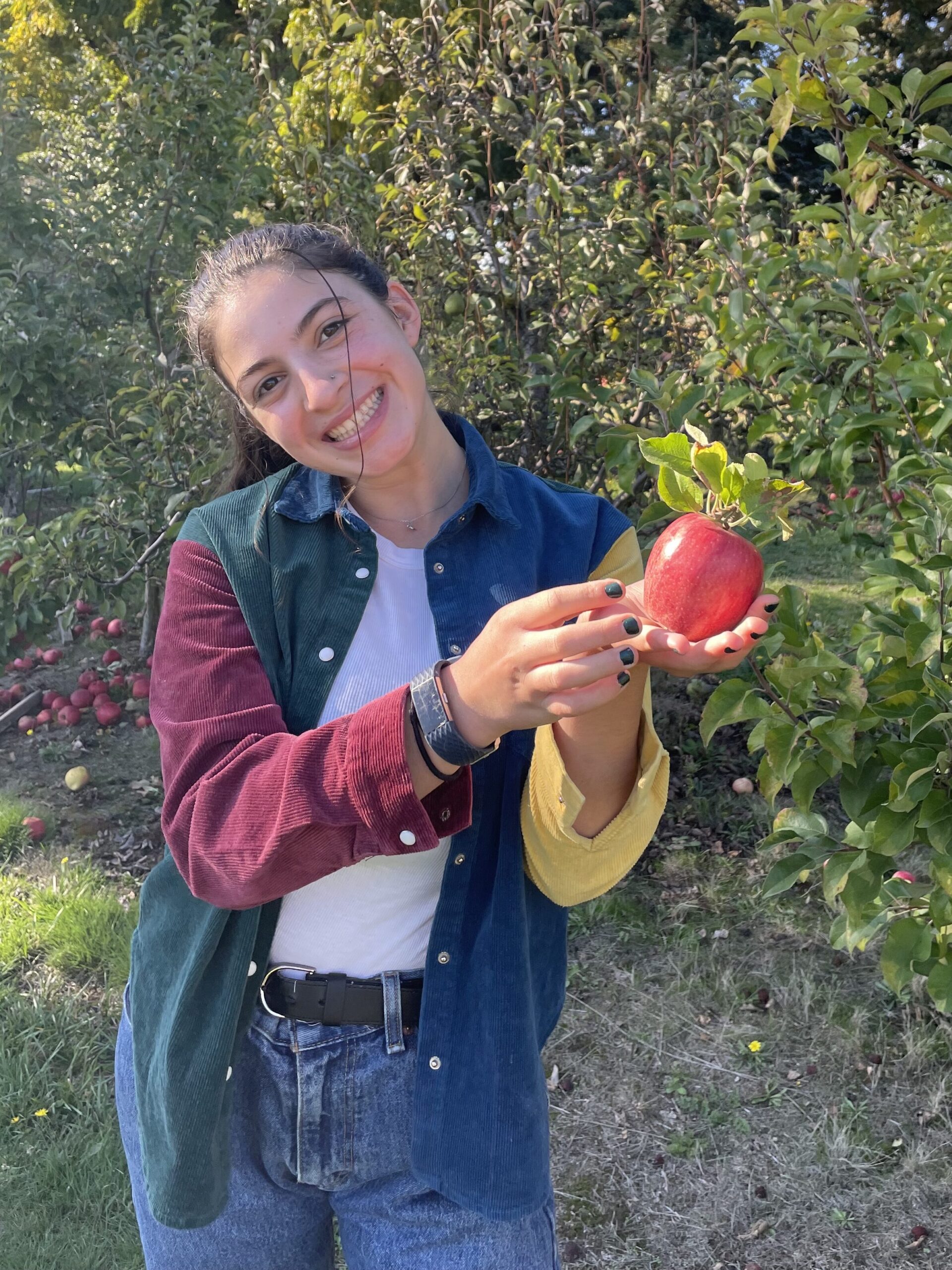
Amidst the high holiday season, I found myself, for the first time, having no prescribed rubric for how to honor these days. Being in nature, though, was grounding. While I’ll never turn down a chance to go for a walk or eat a meal outside, something about spending high holidays out in nature felt particularly special—somehow simultaneously mundane and magnificent.
As a high-holiday-in-nature highlights reel: on day two of Rosh Hashanah, some of us ventured to the well-named Kindness Farm to volunteer with PDX Hillel alongside adorable goats and chickens. T-10 spent over half of the 10-day period between the start of Rosh Hashanah and Yom Kippur surrounded by the unforgettable beauty of Mt. Rainer. This past week, we constructed our own sukkah (with bamboo we hauled from a gracious neighbor’s backyard).
While this was all very new—being in completely new places with new people—something about it felt very familiar, and I’d like to attribute that to the power of nature. As a self-proclaimed being-in-nature-and-taking-pictures-of-it enthusiast, I think nature is not only often an escape, but a window into how our world can operate more as a mutualistic ecosystem—a society based on relationships that benefit everyone involved.
Entering Kindness Farm was like entering a portal: the car pulled up in front of a house (resembling the other houses on the block), no sign of a farm. We were happily greeted by one of the chairs of PDX Hillel and led through a narrow passageway adjacent to the garage. As we stepped through, the hilly residential atmosphere of southeast Portland disappeared into an expanse of lush gardens and roaming wildlife. In the words of Kindness Farm’s website, “When you step on this land you forget you’re in the city, surrounded by trees, birds, goats, chickens, and endless plants and flowers.”
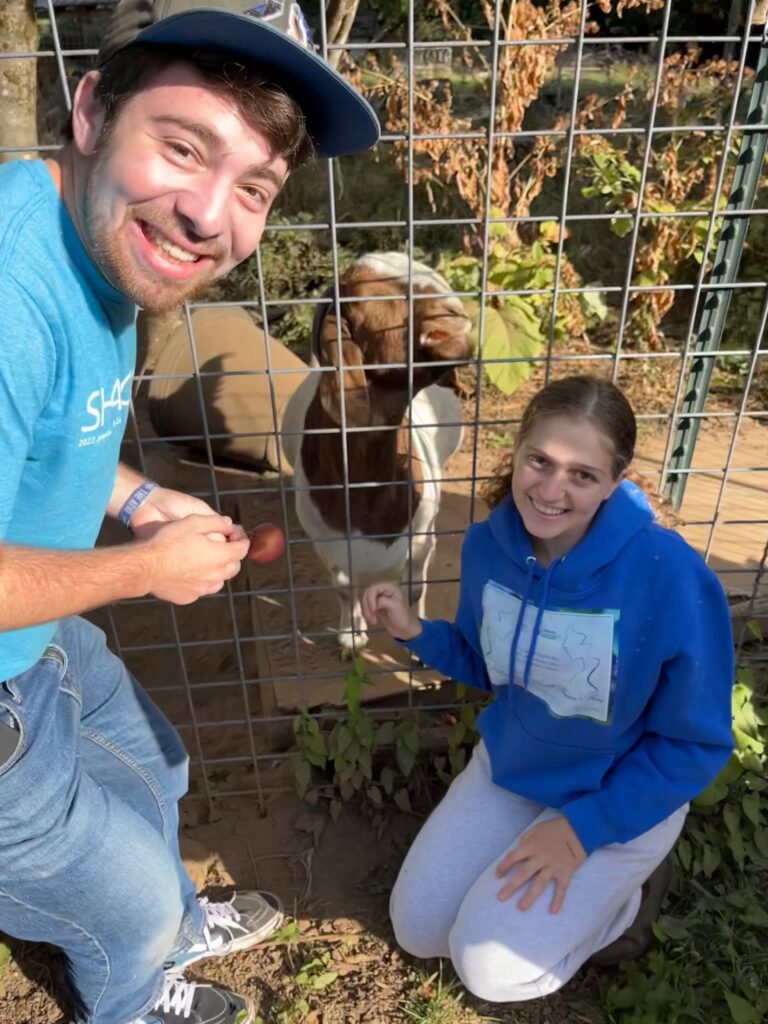
Suffice it to say, we were immersed in a starkly different environment than we had been in just an hour before. The concept of immersion is nothing foreign to Judaism. One of the most prominent (and literal) examples of this: the ritual of being in a mikvah. A month ago, we actually went to a local mikvah and had the opportunity to immerse ourselves, marking individual life transitions.
I often find true immersion hard to come by in the high holiday season. My previous attempts at introspection were often interrupted by the stress of missed schoolwork, honks and sirens on busy city streets, or overall uneasiness attached to the holidays themselves. Being on this farm, though (even if only for a few hours), surrounded by plants, goats, bagels, and nice people, was exactly the environment I needed to be immersed in to mark the transition of the new year.
A week after visiting the farm, we found ourselves immersed in a quite different environment: Mount Rainier. While smaller-scale natural beauty is wonderful, the feeling of being completely submerged under a canopy of trees or minimized in the shadow of a mountain is simply unparalleled. We had the unique opportunity to do tashlich (a ritual involving a body of flowing water) at Snow Lake, a gorgeous blue lake sitting at the base of majestic mountains. Some of us scrambled down to where we could touch the frigid water; others of us spotted black bears across the way.
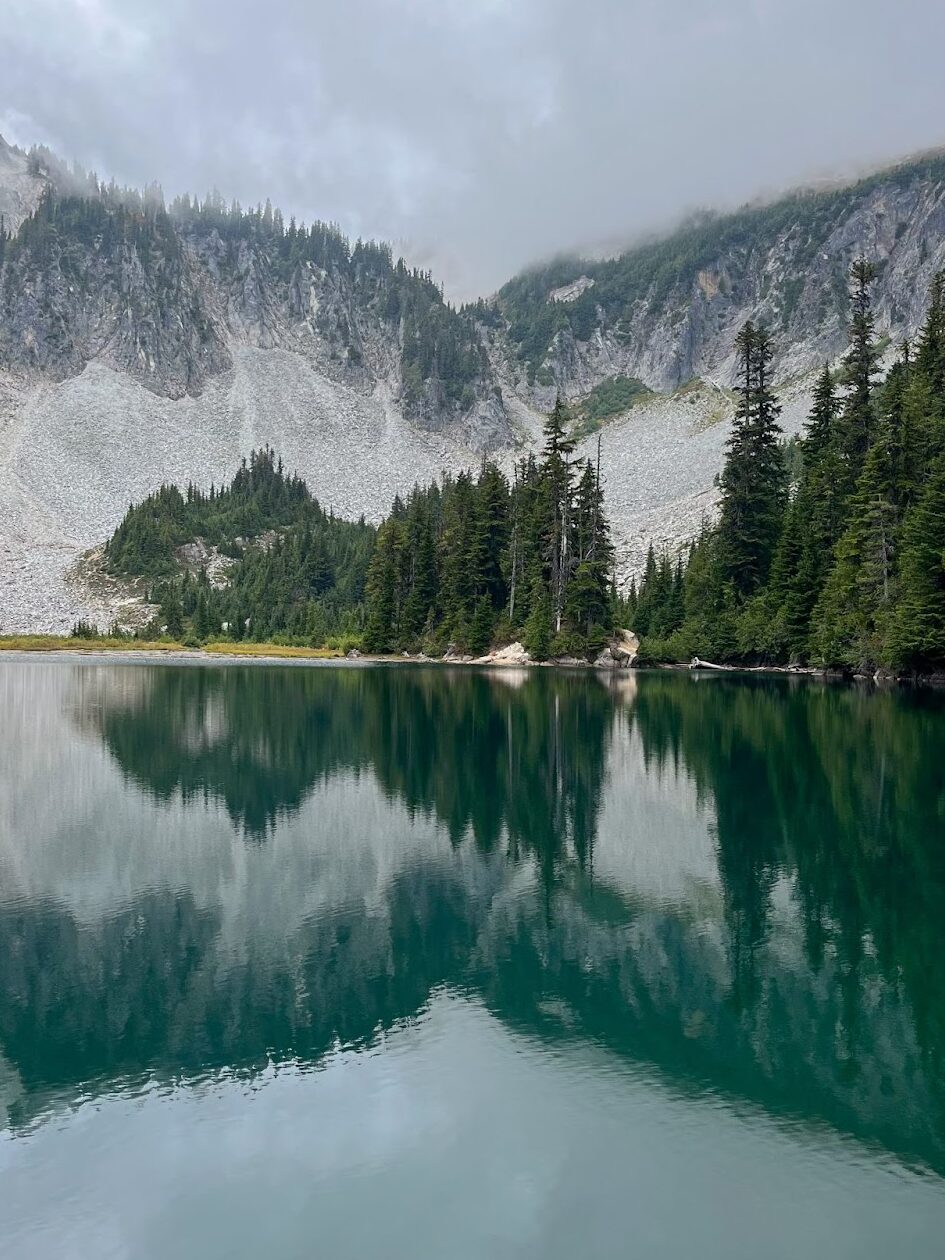
There are some places where no combination of words and images can entirely capture the essence of what it is to be there.
I’m currently reading Writing Wild: Women Poets, Ramblers, and Mavericks Who Shape How We See the Natural World by Katheryn Aalto – a creative nonfiction work that focuses on 25 women and their contributions to our societal understanding of the natural world. While her essays primarily focus on the narratives of the writers, she also intertwines some of her own musings. Aalto travels to many of the destinations on which the featured writers have centered their work – a chance to have the words of individuals (some of which were written centuries ago) come to life in her own way. This of course, as a reader, is recursive – reading someone’s thoughts about someone’s thoughts about nature (and by reading this, you’re now a part of this too – you’re welcome). And I think there’s a reason for this.
That reason is connected to the purpose of tashlich being performed while the person is actively standing on the banks of flowing water and not simply imagining the water or given a description of a hypothetical scene (as gorgeous as that description might be). There is explicit instruction to actively seek out the experience of being immersed.
Most of the ways in which we personally experience and grapple with these ideas produce no tangible product. However, baked into our tradition, we have a whole holiday built (ha!) around channeling energy into a physical structure to immerse ourselves in. Sukkot, the Jewish harvest festival, is celebrated by building temporary huts to commemorate the huts that ancient Jewish people slept in while wandering in the desert post-emancipation. T-10 embarked on our own sukkah-building journey at one of our houses, which involved many (many) zip ties and drilling at awkward angles, but resulted in a relatively structurally sound gathering place. The schach, made out of extremely leafy bamboo (shoutout to the neighbor with all the bamboo), really completed the atmosphere of a joyful, restorative space.
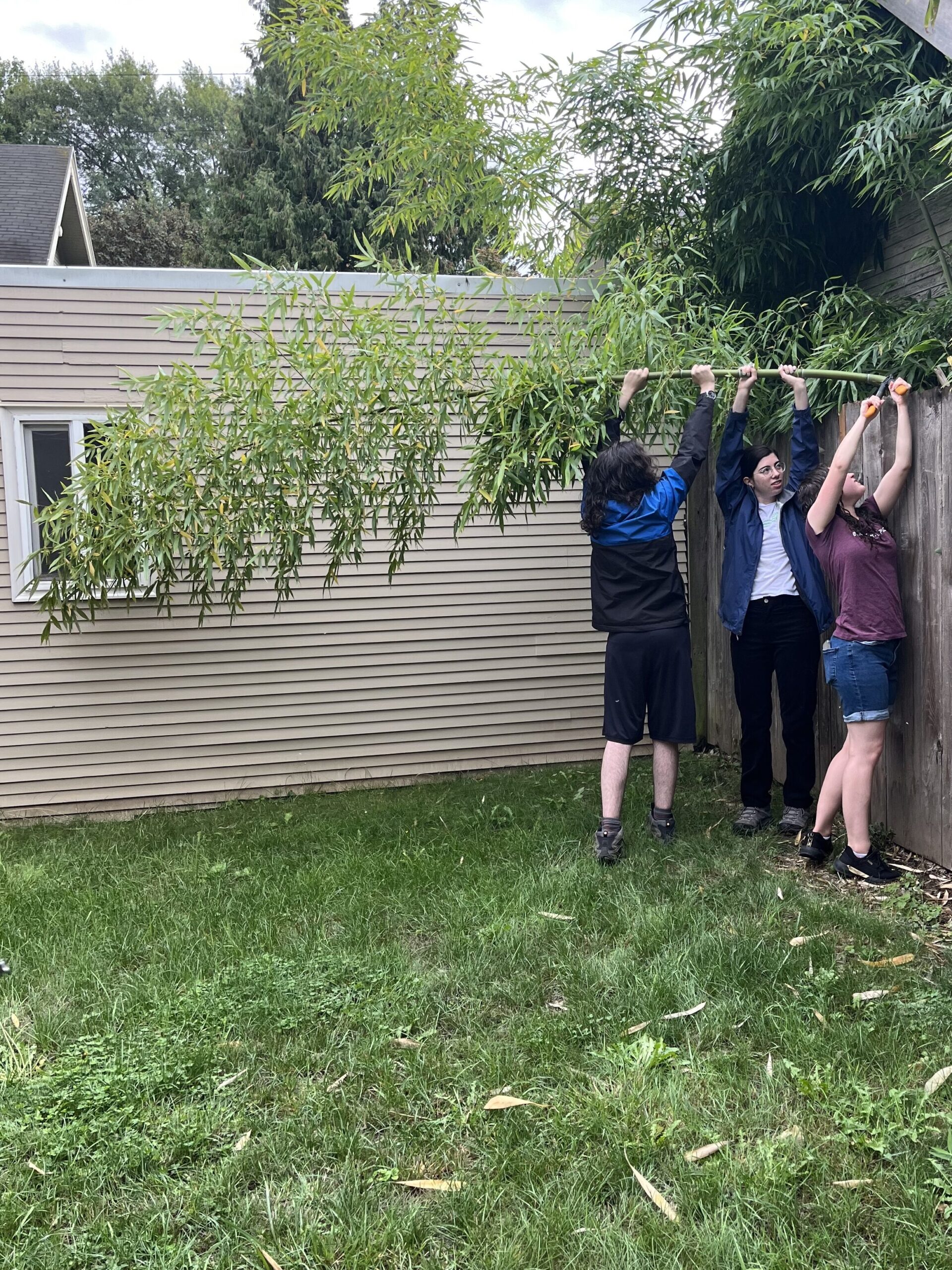
On some level, the familiarity of the high holidays this year came from the intrinsic connection between high holidays and the nature-based rituals that are part of them dating back to ancient times. There’s something so human about being in nature; I’ve begun imagining the sort of responses to nature that ancient peoples would have had and how maybe they’re not that different from ours. Perhaps nature is uniquely positioned to be able to bring out humanness in a way that transcends millennia. I’d imagine that includes the humbleness that comes from standing at the base of a mountain, the sense of fulfillment when coming across scenery during long-treacherous walks (though admittedly, ancient-Israelites’ definition of “long” in terms of walks might even be more strenuous than notorious “Steve-miles”), or even the anxiety about whether the sukkah might just spontaneously collapse due to our lack of construction expertise.
Our tradition encourages us to seek out immersion in nature and by doing so, we continue to invest in a legacy that ties together the past, present, and future.
Though I’ve only been here for a little over a month now, Tivnu has already provided the resources for countless immersive experiences – not just in nature, but in various levels of community, too (cohort, internship-based, Portland, Jewish, etc). At the end of October, we’re heading to Westwind to be immersed in both the beautiful nature of the Oregon Coast alongside each other and the community of a local Reconstructionist synagogue. I look forward to discovering more chances to experience immersion over the course of the year!
Follow Us
Sign Up For Updates
Taking a gap year in the US can be as meaningful as doing one abroad.
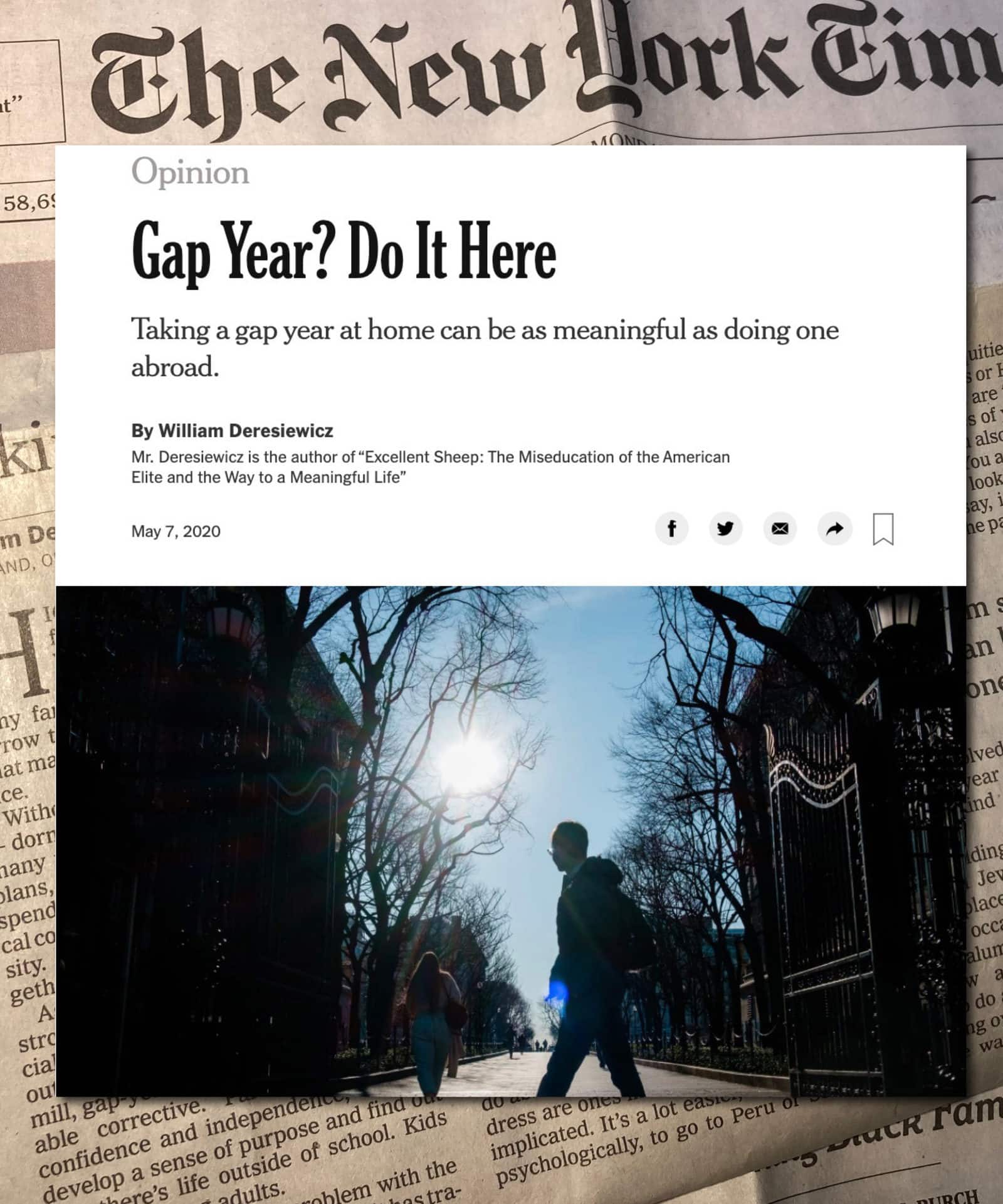 Featured in The New York Times
Featured in The New York Times